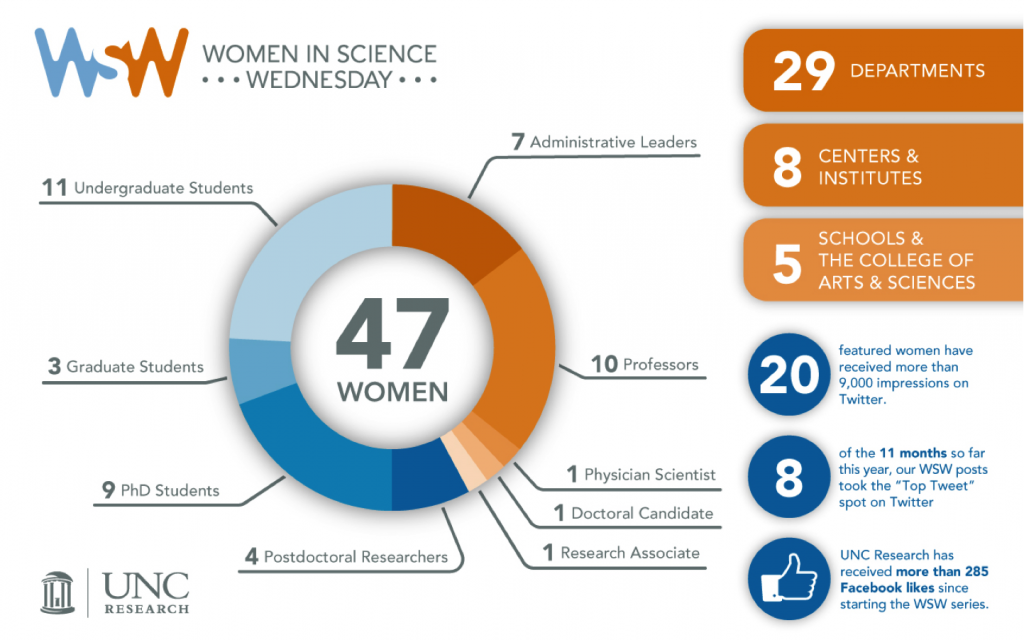At their November 18 meeting, Faculty Council members heard an update from a panel of faculty and staff who are actively working to recruit and retain women and underrepresented minorities in STEM fields.
STEM, which stands for Science, Technology, Engineering and Mathematics, has recently become the focus of the University’s Quality Enhancement Plan (QEP). As part of its 10-year affirmation process with the Southern Association of Colleges and Schools (SACS), the University is reconsidering how it teaches STEM courses and implementing goals and metrics to improve student performance.
Susan Girder, professor of psychiatry and psychology, presented a number of mentoring resources for faculty with caregiving responsibilities. She encouraged early-career scientists to apply for Caregivers at Carolina, a program that helps retain faculty researchers whose productivity may be threatened due to caregiving demands.
Kevin Jeffay, chair of the Department of Computer Science, and Mike Crimmins, director of the Chancellor’s Science Scholars, focused on how programs in their departments are working to improve the pipeline.
“Throughout the 1980s, 1990s, and 2000s, computer science was the only science field in which participation by women and minorities went from near parity to around 10 percent,” Jeffay said.
In response, his department is restructuring the curriculum, attempting to shift the perception of computer science and reaching out to communities to get K-12 students interested in science at an early age.
Efforts at bringing about a cultural shift in attitudes about women and minorities in STEM seem to be having some impact. Layla Dowdy, director of communications for UNC Research, said that the department’s Women in Science Wednesday campaign in print and social media has been so successful that it has outperformed their other stories. She expects the series to continue through 2017.
Shelia Kannappan, associate chair for diversity in the Department of Physics and Astronomy, discussed new mentoring programs and organizations that seek to support women undergraduate and graduate students. Despite improvements to curriculum, pedagogical methods and mentoring, there are still roadblocks to success. Sexual harassment, a chilly climate and obstacles to promotion and tenure are still present.
To watch the entire panel discussion, please click on the video above. For links to programs and resources, see the list below:
Resources:
- Association of Professional Women in Medicine (APWIMS): http://apwims.web.unc.edu/
- Chancellor’s Science Scholars: http://chancellorssciencescholars.web.unc.edu/
- Sotile Center for Resilience: http://www.sotile.com/
- Women in Science Wednesdays: http://endeavors.unc.edu/category/wsw/
- Undergraduate Women in Physics: http://physics.unc.edu/undergraduate-program/student-organizations/women-in-physics/
- APS Bridge Program: http://www.apsbridgeprogram.org/
- Carolina Seminars: http://carolinaseminars.unc.edu/current-seminars-3/
- Caregivers at Carolina (Contact Erica Nouri at erica_nouri@med.unc.edu)
- Women in Science Deserve Opportunities and Mentoring (WISDOM): http://wisdom.web.unc.edu/


